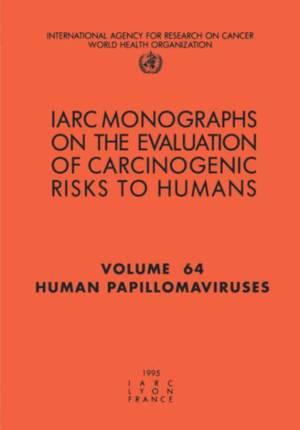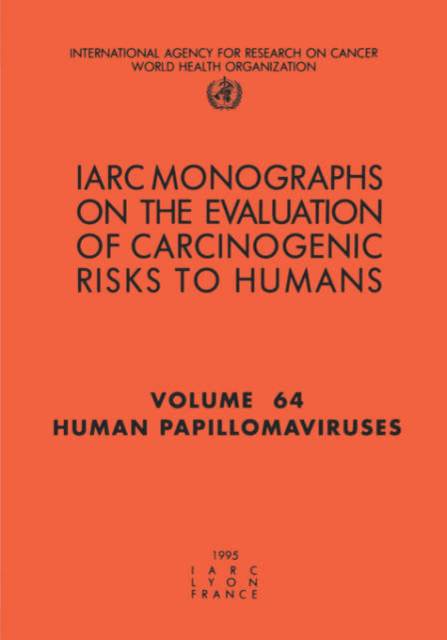
Je cadeautjes zeker op tijd in huis hebben voor de feestdagen? Kom langs in onze winkels en vind het perfecte geschenk!
- Afhalen na 1 uur in een winkel met voorraad
- Gratis thuislevering in België vanaf € 30
- Ruim aanbod met 7 miljoen producten
Je cadeautjes zeker op tijd in huis hebben voor de feestdagen? Kom langs in onze winkels en vind het perfecte geschenk!
- Afhalen na 1 uur in een winkel met voorraad
- Gratis thuislevering in België vanaf € 30
- Ruim aanbod met 7 miljoen producten
Zoeken
Human Papillomaviruses
IARC Monographs on the Evaluation of Carcinogenic Risks to Humans
International Agency for Research on Cancer, Iarc
Paperback | Engels | IARC Monographs on the Evaluation of Carcinogenic Risks to Humans (Paperback) | nr. 64
€ 73,95
+ 147 punten
Omschrijving
Evaluates the carcinogenic risk to humans posed by infection with human papillomaviruses (HPVs). To date, more than 70 HPV types have been identified, of which over 15 have been reported in cervical cancer biopsies. Although investigations of cervical cancer are most abundant, the report also considers the possible involvement of HPV infection in cancers at other sites, including the vulva, anus, skin, and aerodigestive tract. The first part summarizes what is known about the structure and molecular biology of papillomaviruses, and the epidemiology, pathology, and clinical management of HPV infections, including prospects for vaccine development. The main part evaluates the vast body of epidemiological studies investigating whether infection with HPV causes cervical cancer and cancers at several other cites. Findings from over 100 epidemiological case-control and cohort studies were considered. Evidence reviewed includes epidemiological studies conducted in the general population, studies of HPV and cancer conducted in special populations, including transplant patients and HIV-infected persons, and studies of skin cancer in patients with epidermodysplasia verruciformis. The studies provide compelling epidemiological evidence that some HPV types are human carcinogens, with HPVs detected in over 90% of all invasive cervical cancers. Part three cites experimental data supporting the carcinogenicity of specific HPV genotypes and elucidating the mechanisms by which HPV exerts its carcinogenic effects. The final part gives a summary and evaluation of all the available data. The report concludes that HPV types 16 and 18 are carcinogenic to humans. The report further concludes that HPV types 31and 33 are probably carcinogenic to humans, and that some HPV types other than 16, 18, 31 and 33 are possibly carcinogenic to humans.
Specificaties
Betrokkenen
- Auteur(s):
- Uitgeverij:
Inhoud
- Aantal bladzijden:
- 428
- Taal:
- Engels
- Reeks:
- Reeksnummer:
- nr. 64
Eigenschappen
- Productcode (EAN):
- 9789283212645
- Verschijningsdatum:
- 1/01/1995
- Uitvoering:
- Paperback
- Formaat:
- Trade paperback (VS)
- Afmetingen:
- 178 mm x 254 mm
- Gewicht:
- 739 g

Alleen bij Standaard Boekhandel
+ 147 punten op je klantenkaart van Standaard Boekhandel
Beoordelingen
We publiceren alleen reviews die voldoen aan de voorwaarden voor reviews. Bekijk onze voorwaarden voor reviews.









